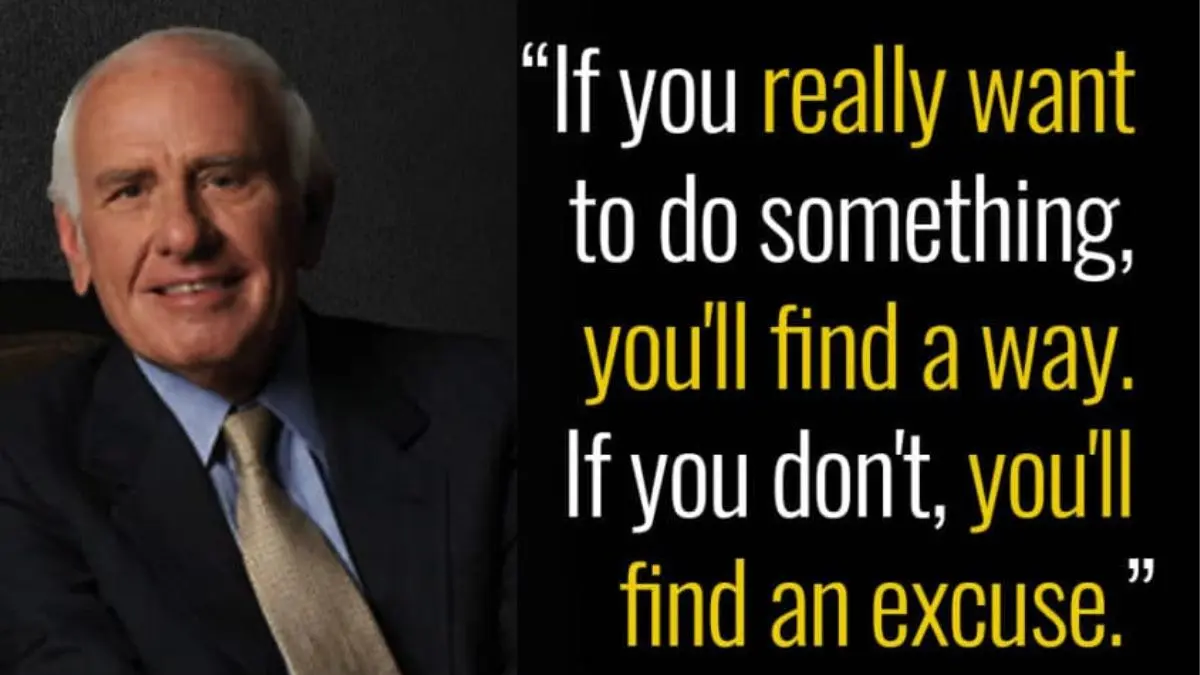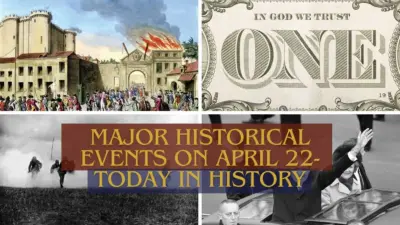- At first glance, it’s a straightforward declaration about the power of determination versus the ease of making exc…
- The quote divides human action into two clear paths: finding a way to achieve what you desire, or finding an excuse to a…
- When these needs are met, motivation is high; when they’re not, the path of least resistance—excuses—becomes m…
- These excuses range from perceived lack of time, fear of failure, or even fear of success.
- These Stories underscore the quote’s message: obstacles and setbacks are surmountable with persistence and creativ…
- The hidden message in this powerful quote is not just about personal responsibility but also about the transformative po…
“If you really want to do something, you’ll find a way. If you don’t, you’ll find an excuse.” This quote, often attributed to motivational speaker Jim Rohn, distils a fundamental truth about human behaviour and motivation. At first glance, it’s a straightforward declaration about the power of determination versus the ease of making excuses. Yet, the depth of this simple sentence, when unpacked, offers profound insights into personal accountability, the psychology of motivation, and the barriers we create that impede our own progress.
The Essence of Determination and Excuses
The quote divides human action into two clear paths: finding a way to achieve what you desire, or finding an excuse to avoid pursuing it. This dichotomy encapsulates the often invisible tug-of-war between our aspirations and our willingness to achieve them. On one side, there’s the essence of determination, which involves vision, planning, and execution. On the other, there’s the realm of excuses, a space dominated by procrastination, fear, and self-imposed limitations.
Psychological Underpinnings
From a psychological perspective, the quote touches on several theories of motivation. Psychologists have long studied why individuals pursue certain actions with zeal while neglecting others. Theories such as Maslow’s hierarchy of needs and Deci and Ryan’s self-determination theory suggest that our actions are often driven by underlying needs for competence, autonomy, and relatedness. When these needs are met, motivation is high; when they’re not, the path of least resistance—excuses—becomes more appealing.
Excuses: The Barriers We Build
Excuses are more than just words; they are psychological constructs that represent the barriers we erect to protect ourselves from the potential pain of failure or the discomfort of stepping out of our comfort zones. These excuses range from perceived lack of time, fear of failure, or even fear of success. By rationalizing inaction, we avoid confronting these fears, thus stunting personal growth and achievement.
Accountability and Self-Reflection
The quote implicitly calls for a high degree of self-awareness and accountability. It challenges us to reflect honestly on our choices and to examine whether we are truly committed to our goals. This self-reflection is crucial because it forces us to confront the reality of our motivations, making it possible to break cycles of excuse-making and underachievement.
Case Studies of Determination
Throughout history, there are myriad examples of individuals who embodied the spirit of finding a way. Consider Thomas Edison, whose pursuit of the electric light bulb entailed thousands of experiments; or J.K. Rowling, who wrote the initial Harry Potter book in challenging personal circumstances, facing numerous rejections from publishers. These Stories underscore the quote’s message: obstacles and setbacks are surmountable with persistence and creativity.

The Role of Environment and Support
While personal determination is pivotal, the environment also plays a significant role in shaping our ability to overcome challenges. Supportive relationships, access to resources, and even societal structures can influence whether one finds a way or succumbs to excuses. Thus, the quote also invites us to consider how we can create environments that foster rather than hinder determination.
Strategies to Overcome Excuses
To embody the spirit of “finding a way,” here are practical steps to overcome the allure of excuses:
- Set Clear Goals: Understand what you want to achieve and why it’s important to you.
- Plan Thoroughly: Break down your goals into actionable steps and set timelines.
- Seek Resources: Gather the necessary tools, information, and support to facilitate your tasks.
- Monitor Progress: Regularly review your progress to adjust plans and maintain motivation.
- Cultivate Resilience: Develop the ability to rebound from setbacks with a positive attitude.
Embracing the Challenge
Embracing the ethos of “finding a way” means viewing each challenge as an opportunity to advance and grow. It’s about shifting our mindset from one that sees hurdles as stopping points to one that views them as stepping stones. It requires resilience, adaptability, and a refusal to give up in the face of adversity.
Conclusion: A Call to Action
The hidden message in this powerful quote is not just about personal responsibility but also about the transformative power of action over inaction. It challenges each of us to examine our own lives and ask whether we are truly committing to our dreams or merely floating along, making excuses. Ultimately, the quote serves as a call to action: to live deliberately, to choose purpose over passivity, and to transform our aspirations into achievements through sheer will and determination.
Also Read: Don’t judge each day by the harvest you reap but by the seeds that you plant.



